In a historic and unprecedented ruling, US President-elect Donald Trump has been sentenced to an “unconditional discharge” in the hush-money payment case, marking the conclusion of the first-ever criminal trial involving a former US president.
This legal decision brings an end to months of high-profile courtroom drama that captivated both the media and political circles.
The sentence, delivered by Judge Juan Merchan, effectively spared Trump from any criminal penalties, including imprisonment or financial fines. However, the ruling does not erase Trump’s status as the first US president to enter office with a felony conviction.

Despite the relatively light sentence, Trump’s conviction remains a critical moment in his political and legal history, one that has never before been seen in the nation’s top office.
Judge Merchan, after reflecting on the extraordinary nature of the case, remarked that “never before has this court been presented with such a unique and remarkable set of circumstances,” referring to the intense media coverage and the political fallout from the case.
He described the trial as a “truly extraordinary case,” noting how it had unfolded in the shadow of Trump’s second presidential bid.
Appearing virtually from his residence in Florida, Trump was flanked by his legal team and displayed two prominent American flags in the background.
This was the first time throughout the lengthy legal battle that Trump chose to speak at length, beyond simply pleading “not guilty” or answering brief questions.
Addressing the court, he declared, “I am totally innocent,” and expressed frustration over the legal proceedings. Trump claimed that the case was politically motivated and argued that the judicial system had been “weaponized” against him for political reasons.
“I’ve been treated very, very unfairly,” Trump continued. “This whole case has been brought for purely political reasons by Manhattan District Attorney Alvin Bragg.”
His comments were directed at Bragg, who had been the key prosecutor in the case. As Trump delivered his speech, Bragg maintained a stoic expression, although he could be seen chuckling when Trump claimed that Bragg had never wanted to bring the case to trial in the first place.
The charges stemmed from a controversial plot to silence adult film actress Stormy Daniels during the closing days of the 2016 presidential election campaign.
In October of that year, Trump’s then-attorney, Michael Cohen, paid Daniels $130,000 to ensure her silence regarding a year-old alleged affair with Trump. After Trump won the election, he reimbursed Cohen for the payment in installments, which he falsely recorded as legal expenses.
In May 2024, Trump was convicted on 34 felony counts of falsifying business records related to the cover-up. These charges were brought forward after an investigation into the payment and its falsified documentation.
Despite the severity of the charges, Trump continued to deny the affair with Daniels and maintained that the case was politically motivated. He referred to the entire trial as a “terrible experience” and suggested that it was part of a broader effort to undermine his presidency.
The case was delayed multiple times due to Supreme Court rulings and the November presidential election, which had further complicated the timeline of the trial.
Trump’s legal team repeatedly filed appeals, seeking to dismiss the case or delay sentencing by arguing that presidents-elect have immunity from criminal prosecution. However, these efforts were rejected by Judge Merchan, who moved forward with the sentencing after Trump’s victory in the 2024 election.
The conclusion of this case is seen as a critical moment not only for Trump personally but also for the American legal and political system. The six-week trial became a media spectacle, with larger-than-life figures like Cohen and Daniels taking the stand to provide testimonies that added fuel to the firestorm.
Trump used his presence in court to rally his supporters and portray himself as a victim of a corrupt justice system, capitalizing on the legal drama to raise funds for his legal battles and re-election campaign.
Despite multiple criminal indictments, including two focused on his efforts to overturn the results of the 2020 election, Trump went on to decisively win the 2024 presidential election, defeating Vice President Kamala Harris. His victory cast a shadow over the ongoing legal cases, with the federal prosecutions related to election interference and the mishandling of classified documents still pending.
Trump’s legal and political battles, however, are far from over. As of now, the hush-money case remains the only one to go to trial, with other cases still in the pipeline, including one related to alleged election interference in Georgia. The legal battles have not only shaped his presidency but also played a significant role in his public image.
When Trump is sworn in for his second term on January 20, 2025, he will do so as the first sitting US president with a criminal conviction, a fact that will likely remain a point of contention in American politics.
As the proceedings wrapped up, Judge Merchan had one final message for the incoming president: “I wish you Godspeed as you assume your second term in office.”


































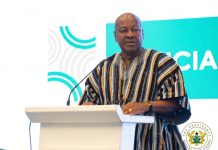
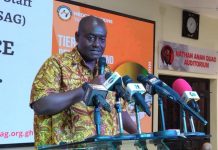
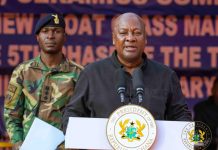




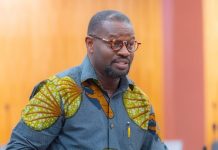









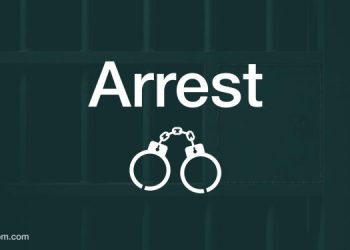




![[FREE FREE MONEY] Predict and Win a Guaranteed GH¢200 From Us EVERY WEEK](https://wordpress.ghanatalksradio.com/wp-content/uploads/2022/02/Predict-and-Win-Final-09-03-2021-218x150.jpg)
![[Predict & Win – 8th/Oct.] WIN A Guaranteed ¢200 From Us This Week](https://wordpress.ghanatalksradio.com/wp-content/uploads/2021/10/maxresdefault-16-218x150.jpg)
![[Predict & Win – 2nd] WIN A Guaranteed ¢200 From Us This Week](https://wordpress.ghanatalksradio.com/wp-content/uploads/2021/09/maxresdefault-50-218x150.jpg)
![[Predict & Win – 25th] WIN A Guaranteed ¢200 From Us This Week](https://wordpress.ghanatalksradio.com/wp-content/uploads/2021/09/maxresdefault-36-218x150.jpg)
![[Predict & Win – 18th] WIN A Guaranteed ¢200 From Us This Week](https://wordpress.ghanatalksradio.com/wp-content/uploads/2021/09/maxresdefault-23-218x150.jpg)



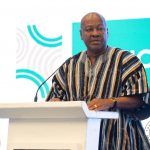






![[National cathedral] See full list of churches that have contributed since 2018](https://wordpress.ghanatalksradio.com/wp-content/uploads/2020/09/Ghana-National-Cathedral-GhanaTalksRadio-100x70.jpg)



